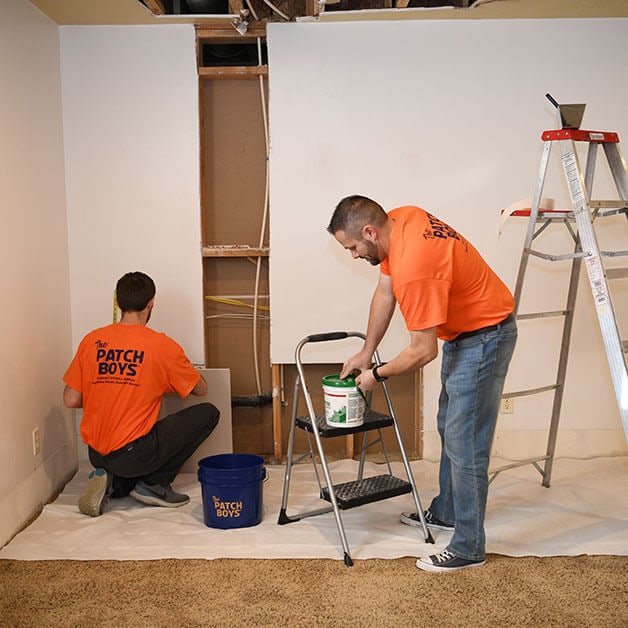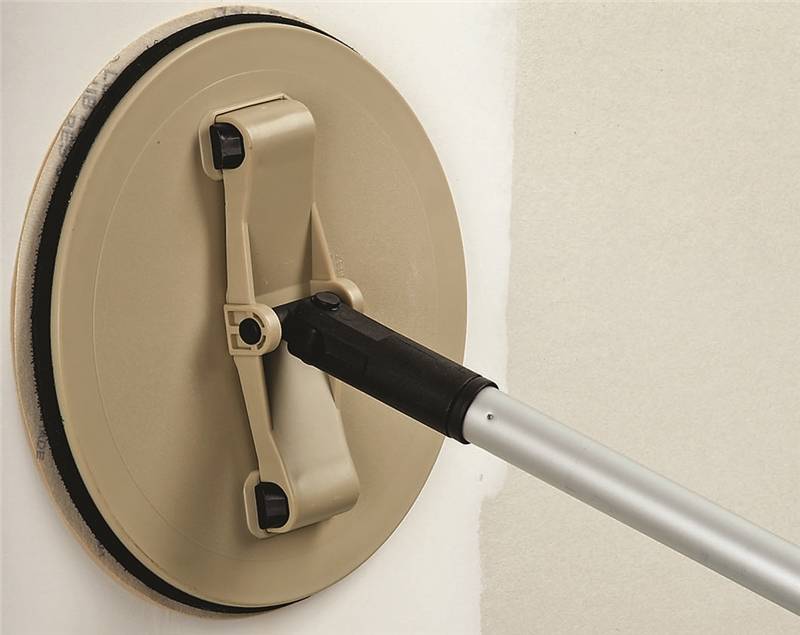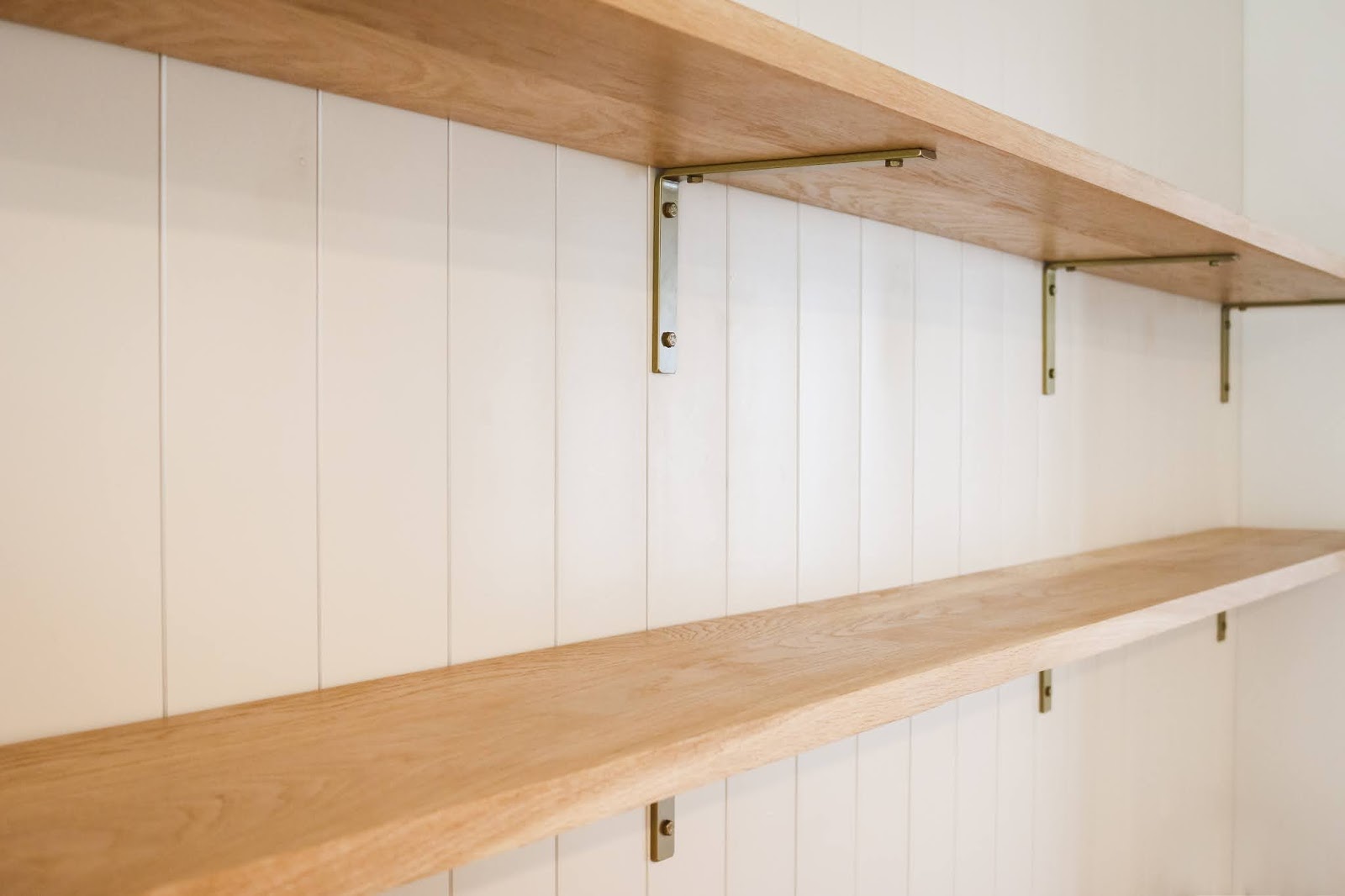
There are many things to take into consideration when it comes to plaster. It is important to have the right tools, the right amount of sandpaper and the best type of sanding materials. The right product can help you achieve a professional look. The process of sanding plaster may be as simple or complex as using a handheld tool. It doesn't matter which method you use, the following tips will help you.
Sanding is perhaps the most important aspect of the plastering process. If you have an uneven surface, you may be looking at several coats of plaster. However, if your surface is clean and smooth you can apply the primer in one application. Sanding the plaster can reveal cracks and allow you to repair them before you apply primer.

It is best to remove all dust and junk from the wall before you sand it. This is safer and easier than you might think. You should use a particle mask when you sand. It's important to avoid exposing your skin to things that could damage or break the material. To avoid this, you'll also want to seal off your doorways and windows.
If you're sanding a large surface, you might want to consider using a powered sander. They come in many sizes so it shouldn't be difficult to find one that meets your needs. They're also more powerful than handheld sanders, so they can be used to sand a large area quickly. If you're looking for more hands on experience, you could hire a sanding professional.
An abrasive mesh is one of the easiest ways to sand plaster. These are a good option if you don't want to use sandpaper. Abrasive mesh is made from silicon carbide which is extremely hard. This mesh is not only durable but can also be turned over and blown clear of dust if it becomes clogged.
You should consider an abrasive disk as well as abrasive mesh. These are designed to be used with a circle disc. These are often used for grinding, but can also be used as sanding tools. A good abrasive disk will make sanding more efficient and effective over the long-term.

The best sanding tool is the one that produces the best results. Use the right sandpaper along with the correct abrasive to achieve a professional-looking finish. A sanding floating float can make your results even better. Another tool you might want to invest in is a flat scraper. This tool is useful for removing snots and other debris. You may need either a lower or a higher grade of sandpaper, depending on the surface that you are sanding.
FAQ
How much does it cost for a house to be renovated?
Renovations can cost from $5,000 to $50,000. Renovations typically cost homeowners between $10,000 and $20,000
What room should you remodel first?
The heart of any home's kitchen is its kitchen. It is where you spend your most time cooking, entertaining, eating, and relaxing. If you're looking to make your kitchen more functional, attractive and beautiful, this is the place for you!
A bathroom is an essential part of every home. It offers privacy and comfort for daily chores such as washing your hair, brushing your teeth, shaving, or getting ready to go to bed. These rooms can be made more functional and attractive by installing storage space, a shower, or replacing older fixtures with newer models.
Should I hire an architect or builder?
It may be simpler to hire someone to help you renovate your home. An architect or builder is a good option if you plan to buy a new house.
How can I avoid getting ripped off when renovating my house?
Knowing what you're paying for is the best way to avoid being scammed. Make sure you read every word of the contract before signing it. Don't sign any contracts that aren't complete. Always request a copy of any signed contracts.
Can I renovate my whole home myself?
If you can do it yourself, why pay someone else when you could save money and time?
You may love DIY but there will come a time when you can't do it all by yourself. There could be too many variables to manage.
If you have an older home, for example, the wiring might be outdated. To ensure safety and reliability, you will need to hire an electrician.
It is possible that your renovations might cause structural damage.
You may not have the proper tools to complete the job. You will need a special tool called the plumber's snake to clean clogged pipes if you plan to install a kitchen sink.
You will also need a licensed plumber to work on your plumbing project.
It is important to understand your capabilities before embarking on such a large task.
If you are unsure if it is possible to do the job on your own, ask friends or family members who have worked on similar projects.
They can help you determine the right steps and where you can find out more.
What should I do first when renovating my house?
The first step in fixing up a home is to get rid of any clutter. Next, you will need to eliminate mold, repair or replace any damaged walls, repaint your entire interior, and fix any leaky pipes. You will need to clean up the exterior and paint.
How do I choose a good contractor?
Ask family and friends to recommend contractors. Check out online reviews. It is important to confirm that the contractor that you choose has worked in the same area as you. Ask for references and check them out.
Statistics
- A final payment of, say, 5% to 10% will be due when the space is livable and usable (your contract probably will say "substantial completion"). (kiplinger.com)
- ‘The potential added value of a loft conversion, which could create an extra bedroom and ensuite, could be as much as 20 per cent and 15 per cent for a garage conversion.' (realhomes.com)
- It is advisable, however, to have a contingency of 10–20 per cent to allow for the unexpected expenses that can arise when renovating older homes. (realhomes.com)
- Rather, allot 10% to 15% for a contingency fund to pay for unexpected construction issues. (kiplinger.com)
- The average fixed rate for a home-equity loan was recently 5.27%, and the average variable rate for a HELOC was 5.49%, according to Bankrate.com. (kiplinger.com)
External Links
How To
Five Things You Must Know Before Starting Your Home Renovation
-
Is this something you really want? It's likely that you will need assistance if you plan to tackle a large home improvement project, such as remodeling your kitchen or bathroom or building a new home. You might reconsider if you're not confident enough to handle such a huge task on your own. You could lose a lot of time and money and not reap any real benefits. Instead, you can hire someone who knows their stuff to help. They'll save your time and make it easy for you to have a wonderful place to call home.
-
How much should I spend? This might sound obvious, but spending too much money on a renovation could lead to more problems. Because you will likely end up paying most of the costs back at the conclusion of the day. If you have a budget in place, stick with it. Otherwise, you could end up paying a fortune without getting anything in return.
-
Do I prefer to hire professionals or DIY? - There is no right or incorrect answer. However, we recommend hiring professional tradespeople when you can afford them. They can give you sound advice about how to proceed with your project. They'll install your plumbing correctly, provide a warranty, and ensure everything goes according to plan. On the flip side, DIY projects usually involve lots of trial and error, which means you'll have to learn a lot of lessons the hard way. Additionally, you will have to deal all manner of problems that can arise along the way.
-
Can I afford it? Do not underestimate the costs of a renovation. Even if you believe you can handle it yourself, it might be necessary to borrow money from your family or friends just to cover the costs. If you are planning on selling your existing property soon after finishing the renovations, it is important to include the cost of selling it in your calculations.
-
Where should I begin? There is no wrong or right place to start when it comes time to choose where to begin. We suggest you choose something you like to do. That way, you'll be motivated to keep going, and you'll be less likely to procrastinate. You should also avoid areas that require extensive maintenance. For instance, you shouldn't attempt to redecorate your living room if you're constantly dealing with dust and dirt.